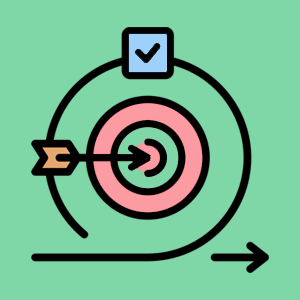 Traditional marketing strategies often encounter challenges of unpredictability and rapid change. To address this, marketing teams have begun adopting a groundbreaking approach – Agile Marketing. This methodology, inspired by the Agile software development process, offers a fresh perspective on how marketing campaigns can be executed, promising increased adaptability, quicker responses, and improved results. In this blog post, we will delve into what Agile Marketing entails, explore its pros and cons, and discuss whether marketing teams should consider making the switch.
Traditional marketing strategies often encounter challenges of unpredictability and rapid change. To address this, marketing teams have begun adopting a groundbreaking approach – Agile Marketing. This methodology, inspired by the Agile software development process, offers a fresh perspective on how marketing campaigns can be executed, promising increased adaptability, quicker responses, and improved results. In this blog post, we will delve into what Agile Marketing entails, explore its pros and cons, and discuss whether marketing teams should consider making the switch.
What is Agile Marketing?
Agile Marketing is an iterative and collaborative approach to planning, executing, and evaluating marketing efforts. It emphasizes flexibility, adaptability, and continuous improvement, allowing teams to respond quickly to changing market dynamics and customer feedback.
The core principles of Agile Marketing include:
- Iterative Planning: Marketing campaigns are divided into smaller, manageable tasks or “sprints.” Teams prioritize tasks based on their potential impact and execute them in short timeframes.
- Flexibility: Agile Marketing encourages teams to be open to change, making adjustments to campaigns as new data and insights emerge.
- Collaboration: Cross-functional collaboration is essential. Teams work together closely, sharing ideas and insights to achieve common goals.
- Customer-Centric Approach: Agile Marketing places customers at the center, focusing on delivering value and addressing their needs effectively.
- Rapid Feedback: Regular feedback loops, both internal and external, help refine strategies and tactics as campaigns progress.
Advantages of Agile Marketing:
- Adaptability: In a swiftly changing environment, Agile Marketing enables teams to quickly pivot strategies in response to emerging trends or unforeseen challenges.
- Efficiency: Smaller, focused tasks lead to quicker results and reduced waste of resources, enhancing overall efficiency.
- Transparency: Agile methodologies promote open communication and visibility, fostering a culture of accountability and shared ownership.
- Customer-Centric: By regularly seeking customer feedback, teams can ensure their efforts align with customer preferences and needs.
- Improved ROI: Agile Marketing’s iterative approach allows for data-driven adjustments, increasing the likelihood of successful campaigns and higher returns on investment.
Challenges of Agile Marketing:
- Initial Learning Curve: Transitioning to Agile Marketing may require a change in mindset and the adoption of new processes, which can be challenging for some teams.
- Resource Intensive: Continuous collaboration and feedback cycles demand time and effort from team members, potentially straining resources.
- Risk of Scope Creep: Agile’s adaptability might lead to frequent changes in project scope, impacting timelines and budgets if not managed effectively.
- Dependency on Collaboration: Agile Marketing heavily relies on effective cross-functional collaboration. Poor communication can hinder progress.
- Measurement Challenges: Traditional metrics may not always align with Agile’s iterative approach, making it challenging to measure success accurately.
Is Agile Marketing the Right Move for Your Team?
While Agile Marketing offers numerous benefits, marketing teams must carefully consider whether it suits their organization. Factors such as team size, company culture, and industry dynamics play a role in this decision. Teams with a strong appetite for innovation, rapid experimentation, and a willingness to embrace change are more likely to thrive under an Agile framework.
In conclusion, Agile Marketing represents a paradigm shift in how marketing campaigns are conceived and executed. By embracing flexibility, collaboration, and customer-centricity, marketing teams can become more adaptable and responsive, ultimately achieving improved results. While Agile Marketing may not be suitable for every organization, its potential to drive efficiency, enhance ROI, and deliver customer value makes it a compelling option for modern marketing teams looking to stay ahead in today’s dynamic business environment.
